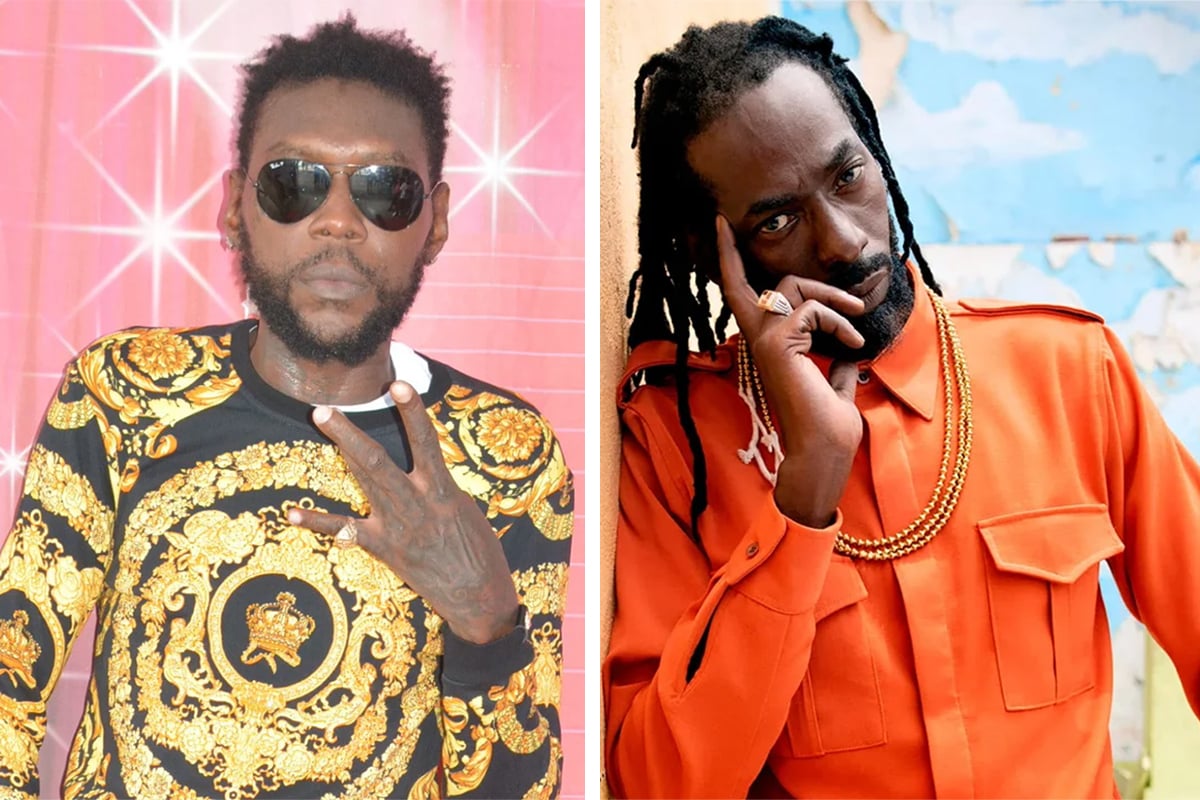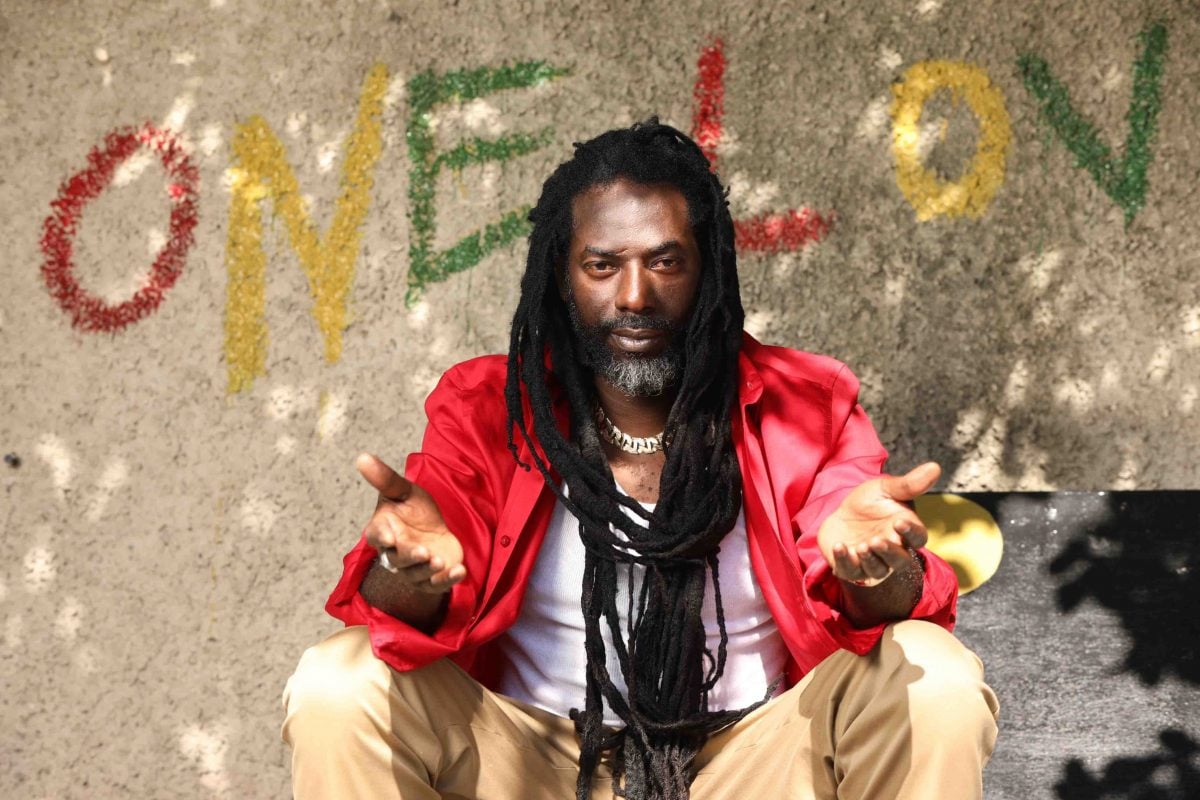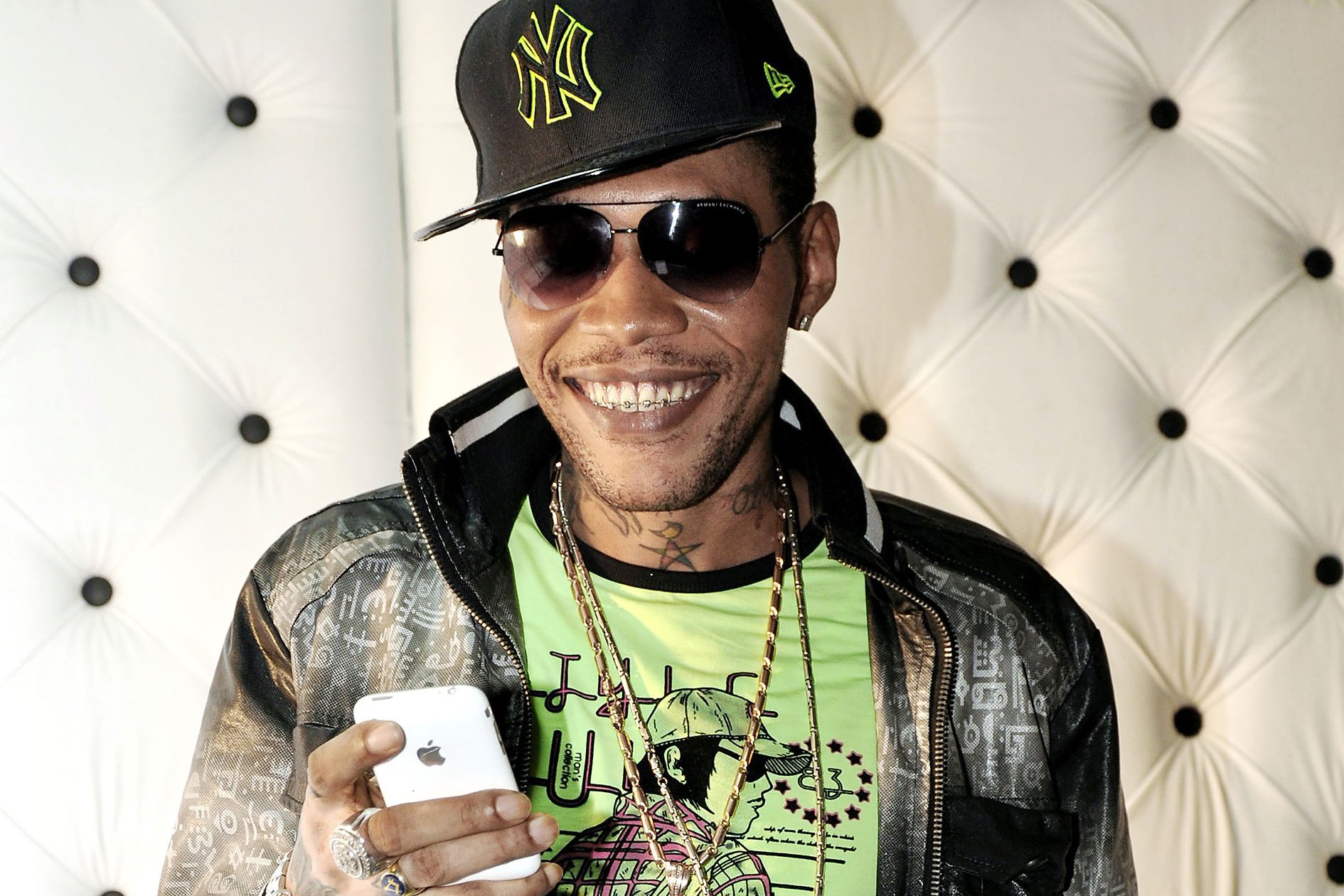Comparing Vybz Kartel And Buju Banton’s Journeys To Freedom

The last few days have epitomized spectacle as several fans celebrate the release and acquittal of dancehall giant Vybz Kartel. The last time the nation experienced this frenzy was in December 2018 when Buju Banton was released from a US state pen.
Banton was welcomed home by scores of fans along Palisadoes and the Norman Manley International Airport in Kingston, while Kartel was welcomed by fans blanketing Tower Street and King Street in Kingston. Though both men are pillars of recorded Jamaican music, there are stark differences between their walk to freedom.
So what makes Kartel’s release so different from Banton’s?
Most Obviously, the Convictions and Circumstances Behind Their Release
In the case of ‘The Gargamel’, he was arrested in December 2009, months after meeting a convicted drug trafficker who sought to organise a cocaine deal for him. Footage of the reggae singer – whose given name is Mark Myrie – licking a dab of cocaine and commenting “I like it” to an informant was part of the evidence used to convict him in 2011.
It took two trials to convict the Destiny hitmaker, which he maintained was a government conspiracy to take him down. He was sentenced to 10 years in prison at the McRae Correctional Facility, but got a revised release date for December 8, 2018.

As for the ‘World Boss’, his freedom came through an overturned conviction and acquittal following a retrial hearing.
The Bail For Me deejay, whose given name is Adidja Palmer, was arrested in September 2011 and charged with possession of marijuana, before later being charged with the murder of businessman Barrington ‘Bossie’ Burton. He was found not guilty of the latter in July 2013, but remained in lock-up in connection with a second murder – cue the case of Clive ‘Lizard’ Williams.
Over 65 days, the jury-selection trial saw Kartel and four co-accused face the prosecution’s allegations of attacking Williams and Lamar Chow over missing guns. Chow escaped, but Williams was never seen again. Kartel, deejay Shawn ‘Storm’ Campbell, Kahira Jones and Andre St. John were found guilty in March 2014, with the former given a life sentence with parole eligibility after 35 years. The fourth accused was found not guilty.

The men challenged this before the Court of Appeal in March 2017, but it was dismissed in April 2020 for reduced sentences. By September, Kartel and his co-accused were granted conditional leave to appeal their conviction before the UK’s Privy Council. This led to their conviction being overturned in March 2024, on the basis of a miscarriage of justice on one incident of jury misconduct. The Privy Council deferred to the Jamaican court in determining his release or retrial, and he walked free on the eve of Emancipation Day last week.
Kartel Released Music Throughout His Prison Stint, Banton Didn’t
Among the latest convo pieces is a demand for Kartel’s post-prison concert, similar to Banton’s National Stadium-held ‘Long Walk to Freedom’ concert months after his release. The biggest difference here is Kartel has a plethora of hits Gaza fans have never seen him perform, like Fever, Colouring This Life, Any Weather and Come Home – all released during his time behind bars.
Banton’s concert was primarily filled with songs fans were used to seeing him perform. Indeed, anticipation was high for his post-prison music, but tracks like Trust and Buried Alive never measured up to the replay value of songs Kartel dropped while locked up. Note, the latter came with controversy. Kartel was constantly investigated for illegally recording music behind bars, a claim he scoffed at in a 2020 Billboard Magazine interview.
The deejay has maintained that he had an extensive archive of unreleased records before his lock-up, despite the presence of modern-day slangs in his music over the last 13 years.
Kartel Maintained a Robust Online Presence Behind Bars, Banton Didn’t
Kartel didn’t hesitate to post content on his Instagram page merely minutes after walking out of the Tower Street Adult Correctional Centre (TSACC). It was the first time fans were seeing a video or photo of Kartel in real-time that wouldn’t warrant an investigation (like when he reportedly went live with Rvssian in 2020). He was active on social media during the 13 years, so his latest posts are a continuation of that, except he can now show his face without legal sanctions.
Banton, on the other hand, didn’t have activity on his Instagram profile until the year of his release. While Addi’s post-prison upload was a video of him enjoying freedom street with fiancée Sidem Ozturk, Banton opted for a photo bearing a statement from his publicist.
Kartel’s relationship with socials has been more intimate, sharing everything from new music, fan posts, his kids, current lady love and ex-wife Tanesha ‘Shorty’ Johnson. He’s also occasionally commented on matters of social injustice and politics, as well as sharing his thoughts on his appeal process. On Saturday, the entertainer archived all posts prior to his acquittal.
Since his release, Banton has taken a more polished approached to keeping a certain aesthetic on his accounts. Indeed, he has gone live to blast the government’s performance, but for the most part, his content has maintained a respectable distance from intimacy, keeping a standard of glossy photoshoots, high-resolution videos and a PR campaign for his online shop.
Kartel’s First Words Urged Youth To Steer Clear of Crime, Banton Danced Around His Conviction
Banton’s time in the pen is an elephant in the room that he pretends never happened. Ahead of his release, a statement shared on his social media indicated that he only wants to be associated with his music.
“Having survived, I want to share the good news and strength of my music. I just want to continue making music, which I’ve devoted my life to. I look forward to the opportunity to say a personal thanks to my fans and everyone who supported me.”
He’s continued to speak about his conviction with vagueness, telling The Guardian in 2020 that prison was an “improvised hell” that he got through by reading, meditating and reflecting on life. Last year, Twin of Twins’ Curly Loxx said Banton was attempting to rewrite history by not addressing the cloud over his head, and that he is in no position to criticise wrongdoing until he admits his own.
While Kartel has not admitted to the allegations he was convicted for, he hasn’t hesitated to warn folks about getting entangled in criminality.
“Mi a tell di yute dem seh stay outta f**ckery,” he said while walking out of TSACC. “Tell di yute dem fi stay outta crime bredrin! It nuh worth it. A waste a life an’ waste a time bredda!”
Kartel Got Straight to Business
When Kartel got outside, he was really outside! The Dancehall Hero had already established himself as a businessman before lock-up, launching products like a rum line, condom brand, party series, reality show and co-authoring a book with Michael Dawson.
Hours after his release, Kartel pumped up the promotion for his new grabba line, Fire Vybz, which was previously launched in April.
A 12-track EP, First Week Out, was also released, featuring prior releases similar to his Party With Me EP in May.
In Banton’s case, he waited a few months before announcing any business venture or releasing new music. Regarding the former, he led with merch like athleisure wear on his website.
As for music, Banton’s post-prison debut came in May 2019, a reunion with longtime producer Donovan Germain on Country For Sale.
